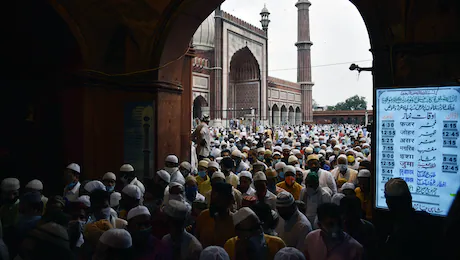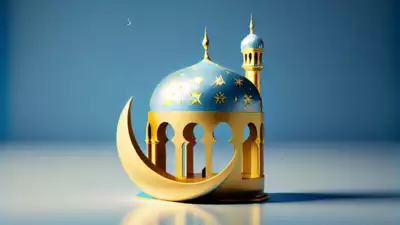Eid-ul-Adha, also known as Bakrid or the Festival of Sacrifice, is a momentous occasion that brings joy and unity to Muslims across India. In this article, we delve into the captivating tale of Eid-ul-Adha, its historical significance, and the vibrant festivities that mark its celebration in India in 2023.
History and Significance
Embarking on a journey through time, Eid-ul-Adha holds a tale that resonates deep within the hearts of Muslims worldwide. It harks back to the virtuous act of Ibrahim (Abraham) and his unwavering devotion to God. In a display of obedience, Ibrahim was willing to sacrifice his beloved son, but in a twist of fate, God replaced the child with a ram, underscoring the sanctity of faith and sacrifice.

Importance of Eid-ul-Adha
Eid-ul-Adha stands as a resplendent symbol of gratitude, introspection, and profound spiritual connections. It teaches Muslims the noble virtues of selflessness, compassion, and gratitude. It is a reminder that, amidst life’s trials and tribulations, we must place our trust in God, embracing His divine will with open hearts and minds.
Celebrations in India
The exuberant celebrations of Eid-ul-Adha reverberate across India, filling the air with infectious enthusiasm and radiant joy. Muslims from all walks of life gather at mosques, open grounds, or specially designated prayer areas to partake in communal prayers. Draped in their finest traditional attire, they beseech God for blessings, forgiveness, and eternal peace.
Eid-ul-Adha Sacrifice (Qurbani)
At the heart of Eid-ul-Adha lies the profound ritual of Qurbani, the sacred act of sacrifice. With hearts brimming with devotion, those who have the means offer a halal animal—be it a goat, sheep, cow, or camel—as an offering to God. This sacrifice signifies the readiness to surrender our desires and aspirations for the sake of God’s pleasure. The meat from the sacrificed animal is then divided into three parts, sharing the abundance with the poor and needy, loved ones, and one’s own family.
Feasts and Festivities
Eid-ul-Adha is a time of mouthwatering feasts and jubilant festivities. Families and friends come together, sharing delightful meals brimming with traditional delicacies and delectable sweets. The aroma of fragrant biryanis, succulent kebabs, flavorful kormas, and heavenly sheer korma fills the air, tantalizing taste buds and spreading pure delight. The spirit of Eid-ul-Adha is further enriched by the exchange of heartfelt gifts, visits to relatives and neighbors, and the strengthening of bonds that foster unity and love.
Charitable Acts
As the essence of Eid-ul-Adha emanates, Muslims embrace acts of kindness and charity, echoing the noble values at the core of this festival. The spirit of giving is palpable as donations, Zakat (charitable giving), and voluntary acts of charity (Sadqah) flow abundantly, reaching those in need and bringing solace to the less fortunate. It is a time when communities come together, reaffirming their commitment to making a positive difference in the world.
Eid-ul-Adha, a momentous occasion for Muslims in India, weaves a tapestry of faith, unity, and joy. It is a celebration that unites hearts and souls, urging believers to reflect upon their spiritual journey, extend compassion, and rekindle their connection with God. As prayers are offered, sumptuous meals savored, and acts of charity embraced, Eid-ul-Adha serves as a reminder of the intrinsic values of devotion, selflessness, and communal harmony. Let us revel in the splendor of this auspicious festival, rejoicing in the bonds of love and celebrating the richness of our faith.



